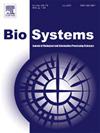脆性X智力迟钝蛋白调节具有预测的液-液相分离倾向的蛋白质的翻译。
IF 2
4区 生物学
Q2 BIOLOGY
引用次数: 0
摘要
脆性X智力迟钝蛋白(FMRP)是一种rna结合蛋白,是神经元翻译的关键调节因子,因此对神经发育和可塑性至关重要。由Fmr1基因突变引起的FMRP缺失会导致脆性X综合征(FXS)和自闭症谱系障碍(ASD),这是最常见的遗传性智力残疾。神经元核糖体分析一致表明,fmrp敲除(FK)显著下调了许多长链基因的翻译,其中许多是fmrp结合靶点,与ASD相关。尽管有这些发现,FMRP对大神经元蛋白翻译调控的功能解释仍然难以捉摸。我们目前的研究汇编了来自已发表的核糖体分析研究的数据,以鉴定FK神经元中翻译显著降低的基因。利用生物信息学分析和基于机器学习序列的工具,PSPredictor和FuzDrop,我们发现这些基因编码的蛋白质被预测在内在无序区域富集,并且容易发生液-液相分离。这些发现表明FMRP调节了参与生物分子凝聚物形成的蛋白质的翻译。我们的研究结果对理解FXS和ASD的分子机制具有重要意义,增加了FMRP调控功能的复杂性,从而为进一步探索和有针对性的智力障碍治疗干预提供了途径。本文章由计算机程序翻译,如有差异,请以英文原文为准。
Fragile X mental retardation protein modulates translation of proteins with predicted tendencies for liquid-liquid phase separation
The Fragile X Mental Retardation Protein (FMRP) is an RNA-binding protein and a key regulator of translation in neurons, hence crucial for neural development and plasticity. FMRP loss, resulting from mutations in the Fmr1 gene, leads to Fragile X Syndrome (FXS) and Autism Spectrum Disorder (ASD), the most common inherited intellectual disabilities. Ribosome profiling in neurons consistently reveals that FMRP-knockout (FK) significantly down-regulates the translation of numerous lengthy genes, many of which are FMRP-binding targets and associated with ASD. Despite these findings, the functional explanation for FMRP's translation regulation of large neuronal proteins remains elusive. Our present study compiles data from published ribosome profiling studies, to identify genes with significantly decreased translation in FK neurons. Using bioinformatic analysis and machine-learning sequence-based tools, PSPredictor and FuzDrop, we found that the proteins encoded by these genes are predicted to be enriched in intrinsically disordered regions and are prone to liquid-liquid phase separation. These findings suggest that FMRP modulates the translation of proteins involved in the formation of biomolecular condensates. Our results can have significant implications for understanding the molecular mechanisms of FXS and ASD, adding complexity to FMRP's regulatory functions, thus offering avenues for further exploration and targeted therapeutic interventions in intellectual disability disorders.
求助全文
通过发布文献求助,成功后即可免费获取论文全文。
去求助
来源期刊

Biosystems
生物-生物学
CiteScore
3.70
自引率
18.80%
发文量
129
审稿时长
34 days
期刊介绍:
BioSystems encourages experimental, computational, and theoretical articles that link biology, evolutionary thinking, and the information processing sciences. The link areas form a circle that encompasses the fundamental nature of biological information processing, computational modeling of complex biological systems, evolutionary models of computation, the application of biological principles to the design of novel computing systems, and the use of biomolecular materials to synthesize artificial systems that capture essential principles of natural biological information processing.
 求助内容:
求助内容: 应助结果提醒方式:
应助结果提醒方式:


